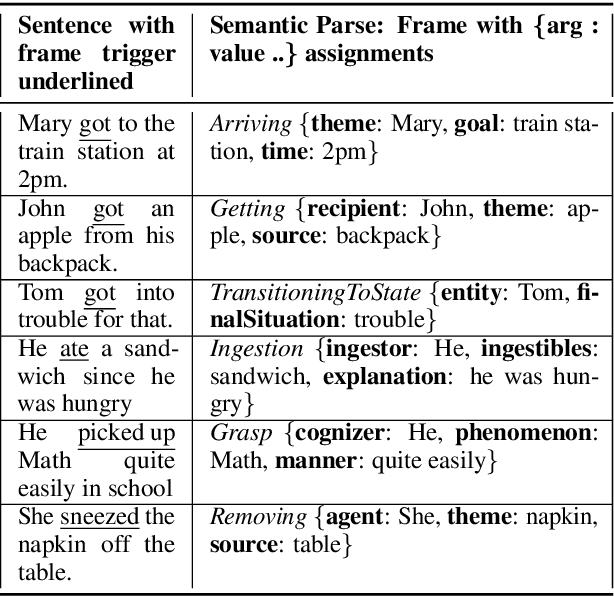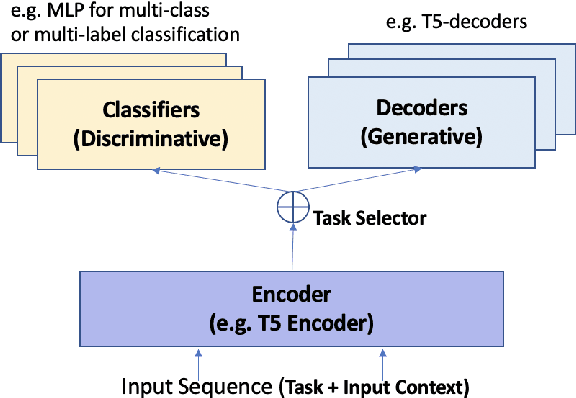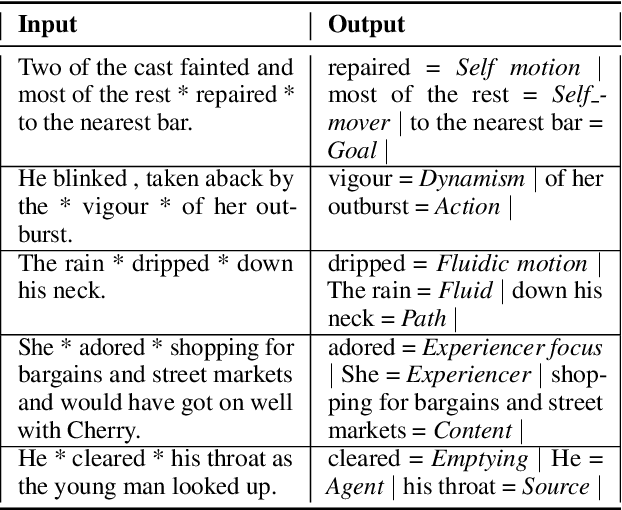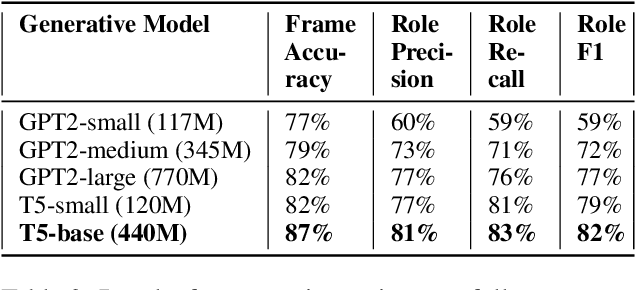Ariel Diertani
Open-Domain Frame Semantic Parsing Using Transformers
Oct 23, 2020



Abstract:Frame semantic parsing is a complex problem which includes multiple underlying subtasks. Recent approaches have employed joint learning of subtasks (such as predicate and argument detection), and multi-task learning of related tasks (such as syntactic and semantic parsing). In this paper, we explore multi-task learning of all subtasks with transformer-based models. We show that a purely generative encoder-decoder architecture handily beats the previous state of the art in FrameNet 1.7 parsing, and that a mixed decoding multi-task approach achieves even better performance. Finally, we show that the multi-task model also outperforms recent state of the art systems for PropBank SRL parsing on the CoNLL 2012 benchmark.
SKATE: A Natural Language Interface for Encoding Structured Knowledge
Oct 20, 2020



Abstract:In Natural Language (NL) applications, there is often a mismatch between what the NL interface is capable of interpreting and what a lay user knows how to express. This work describes a novel natural language interface that reduces this mismatch by refining natural language input through successive, automatically generated semi-structured templates. In this paper we describe how our approach, called SKATE, uses a neural semantic parser to parse NL input and suggest semi-structured templates, which are recursively filled to produce fully structured interpretations. We also show how SKATE integrates with a neural rule-generation model to interactively suggest and acquire commonsense knowledge. We provide a preliminary coverage analysis of SKATE for the task of story understanding, and then describe a current business use-case of the tool in a specific domain: COVID-19 policy design.
 Add to Chrome
Add to Chrome Add to Firefox
Add to Firefox Add to Edge
Add to Edge